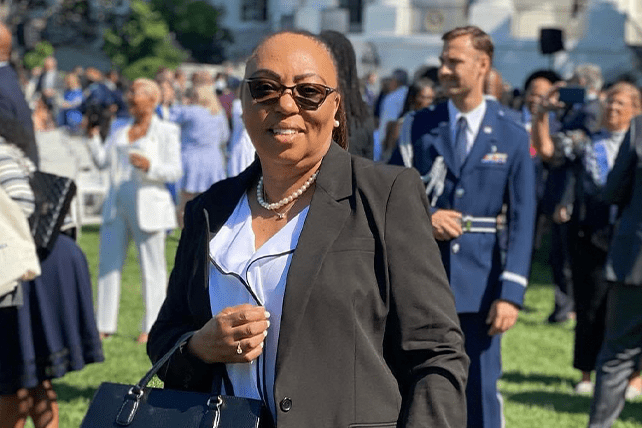(RNS) — When the Rev. Rhonda Thomas decided to create a toolkit to help teach Black history outside the public school system — after Florida legislators approved revisions to its required instruction — she expected Black churches like her own would be the ones to use it.
Thomas, the executive director of Faith in Florida, was correct but not entirely so: Some Florida congregations that aren’t predominantly Black are using her organization’s list of books, videos and documentaries, along with faith leaders from more than 20 other states.
What started in May as a state-focused response has attracted interest in a far wider stretch of the country than Thomas ever imagined. She hopes users of the suggested readings in the online toolkit will come away knowing more about Black history — including burnings of Black churches and massacres of Black communities that happened in her state, along with other Southern states.
“People often don’t look at Florida as even being a part of the South because they’re too busy looking at our tourism and entertainment and food,” she said in a Tuesday (Oct. 10) interview. “Florida is the South. Florida has always been impacted in ways of Southern behavior, and we have a history that needs to be shared.”
The online list includes books on slavery and slave narratives; articles on the Civil War; and documentaries, from “Eyes on the Prize” to “Trayvon Martin: 10 Years Later.” Clergy and lay people can use the resources in congregational settings such as Bible study classes for children, youth or adults, she said.
The toolkit is an extension of work Thomas has long been leading at Faith in Florida, a multiracial and multifaith coalition of congregations that work together on racial, economic and social justice issues, including mobilizing voters, welcoming immigrants and seeking reductions in poverty and gun violence. The statewide coalition is a nonpartisan affiliate of Faith in Action, a national community-organizing network.
Thomas, 63, co-pastor of New Generation Missionary Baptist Church, an independent congregation in Opa-locka, talked with Religion News Service about her development of the toolkit, her personal recollections of segregation in Florida and her coalition’s continuing plans to foster Black history instruction.
The interview was edited for length and clarity.
Why did you decide to create an alternative to teaching Black history in Florida beyond the state school system?
We realized after the passing of (the so-called “Stop Woke Act”) legislation that it was going to impact our public education system as well as some of our universities, that it would be taught in a more diluted way. So we organized congregations who would take a pledge to say we will take on the responsibility of teaching African American history from our churches because we also realized some of that history still lies within our pews.
Was there a particular part of the state legislation that caused you to want to take this action?
Just the attack on how African American history was supposed to be taught. (Legislators said they) didn’t want it to be taught because it was offending white children. I don’t think any of our educators would have taught anything in a way that offends any children. If they wanted to really look at who’s been offended, it has been Black children (who) have been offended — and I use myself — all my life. And not at one point was there anything being erased or diluted to avoid me being offended as a Black woman or Black girl.
What was your particular personal experience with aspects of Black history in your state, where you grew up?
When I think about my own growing up in Florida, Miami-Dade County in particular, I can remember my class in first grade was the first class of Black people to eat in the cafeteria. I can remember attending my dad’s company picnic. He worked at Eastern Air Lines at that time, and there were two picnics — one picnic for the Blacks, one picnic for the whites. And Virginia Key Beach was the only beach Black people could attend because Black people were not allowed to go on Miami Beach unless they were going to work as maids.
How many congregations have now pledged to use the Faith in Florida Black history toolkit?
As of now, we have over 300 congregations. And we have (people in) 22 states outside of Florida that have signed up and committed and pledged to teach African American history.

